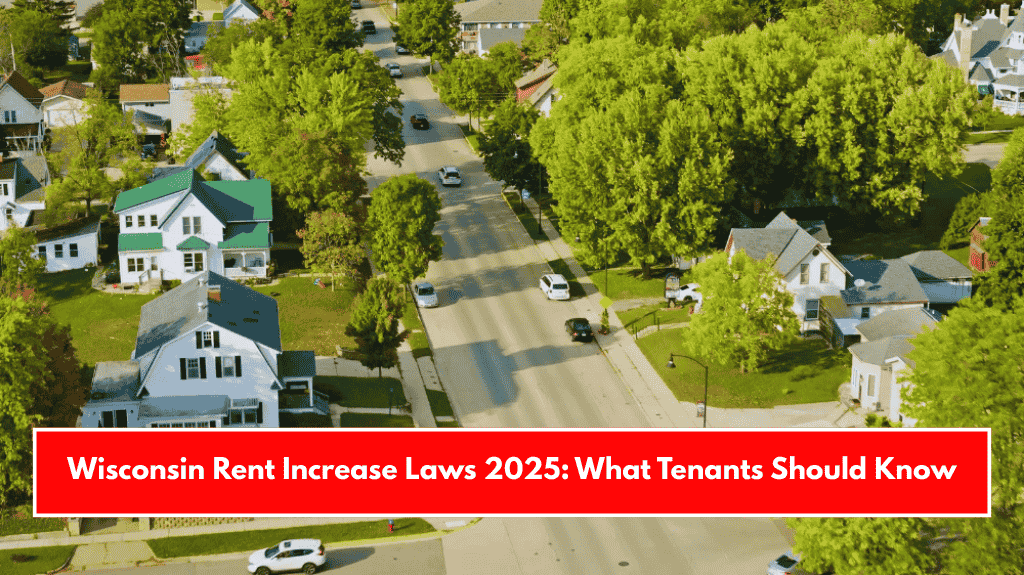Wisconsin’s rental market in 2025 remains largely unregulated at the state level when it comes to rent increases. This landscape gives landlords significant flexibility, but it also means tenants must be vigilant and informed about their rights and responsibilities. Here’s a comprehensive overview of what tenants should know about rent increases in Wisconsin this year.
No Statewide Rent Control
- Wisconsin does not have statewide rent control. Landlords can raise rents by any amount they choose, as long as they provide the proper notice.
- There are no legal caps on how much or how often rent can be increased for most market-rate rentals.
- Some local ordinances may exist in rare cases—such as past efforts in Madison to cap increases—but these are exceptions and often face legal challenges.
When and How Rent Can Be Increased
- End of Lease Term: For fixed-term leases (such as one-year agreements), landlords can only raise the rent at the end of the lease term unless the lease specifically allows mid-term increases.
- Month-to-Month Tenancies: Landlords can raise rent at any time, provided they give proper written notice.
- Automatic Renewal Leases: If your lease includes automatic renewal, the landlord must follow the notice period specified in the lease, typically 60 to 90 days.
Notice Requirements
| Lease Type | Minimum Notice Required | Details |
|---|---|---|
| Month-to-Month | 28 days (written) | Notice must state new rent amount and effective date |
| Fixed-Term (e.g., 1 yr) | 28 days (before renewal) | Must notify before lease ends if raising rent for next term |
| Automatic Renewal | As stated in lease | Often 60–90 days, check lease terms |
- The law requires that the notice be in writing and clearly state the new rent and the date it takes effect.
Exceptions: Subsidized and Rent-Controlled Housing
- Government-subsidized units (like Section 8 or LIHTC) have strict limits on rent increases, often tied to inflation or income guidelines.
- In these units, rent hikes must be approved by the relevant housing authority and cannot exceed program limits.
- Tenants in subsidized housing have additional protections and can file complaints if a landlord attempts to raise rent unlawfully.
Protections Against Unfair Rent Increases
- Discrimination: Landlords cannot raise rent in a way that targets tenants based on race, gender, family status, or other protected classes under fair housing laws.
- Retaliation: It is illegal for landlords to increase rent in retaliation for tenants exercising their legal rights (e.g., filing complaints, joining a tenant union). In some cities, such as Madison, actions taken within six months of tenant activity are presumed retaliatory.
- Due Process: Tenants have the right to contest rent increases they believe are discriminatory or retaliatory by contacting local legal aid or tenant advocacy organizations.
What Tenants Should Do
- Review Your Lease: Understand the terms regarding rent increases, especially for fixed-term and automatic renewal leases.
- Monitor Notices: Ensure any notice of rent increase is in writing and provides at least 28 days’ warning.
- Know Your Rights: If you suspect discrimination or retaliation, contact organizations like Legal Action of Wisconsin or the Tenant Resource Center for guidance.
- Negotiate: Tenants can always try to negotiate rent increases with their landlord, especially if the increase is substantial or if local market rents are lower.
Key Points for Tenants
| Issue | Market-Rate Units | Subsidized/Rent-Controlled Units |
|---|---|---|
| Statewide Rent Cap | None | Yes (per program rules) |
| Notice Required | 28 days (written) | Per program/agency rules |
| Frequency of Increase | Unlimited (with notice) | Limited by program |
| Protections from Retaliation | Yes | Yes |
| Protections from Discrimination | Yes | Yes |
In 2025, Wisconsin tenants outside of subsidized housing face no legal cap on rent increases, but are entitled to at least 28 days’ written notice. While landlords have broad discretion, tenants are protected from discriminatory and retaliatory rent hikes. Understanding your lease, monitoring notices, and knowing your rights are essential to navigating rent increases in Wisconsin.
Sources:
- https://www.hemlane.com/resources/wisconsin-rent-control-laws/
- https://www.mylolowcountry.com/usa-laws/wisconsin-rent-increase-laws-2025-what-tenants-should-know/
- https://www.steadily.com/blog/rent-increase-laws-regulations-milwaukee-wi
- https://www.hemlane.com/resources/wisconsin-tenant-landlord-law/
- https://www.steadily.com/blog/rent-increase-laws-regulations-wisconsin













